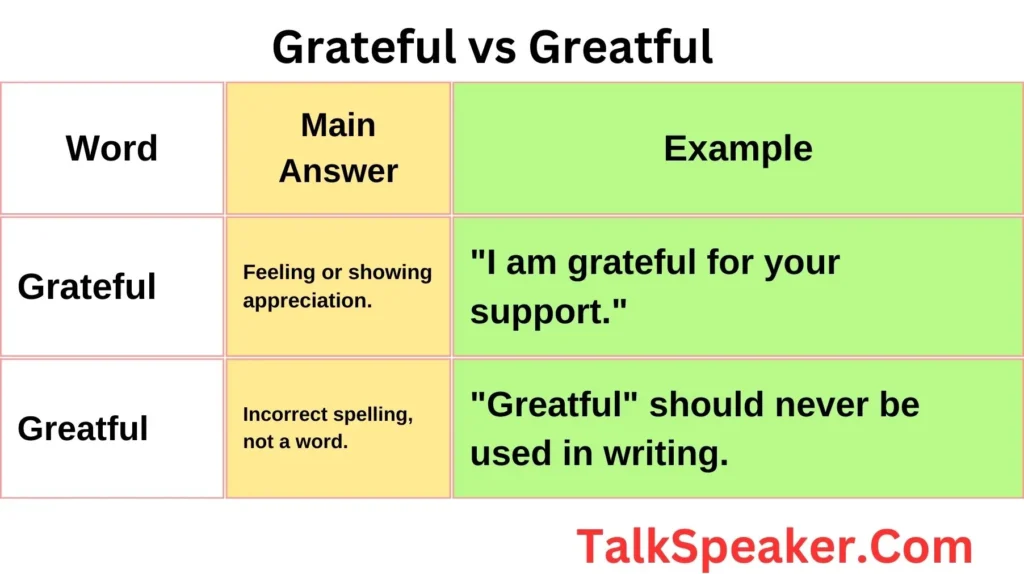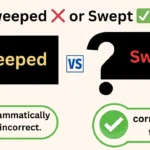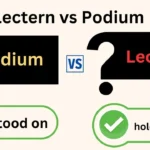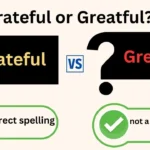Have you ever found yourself staring at the words ‘greatful’ and ‘grateful,’ unsure which one to use?
This common confusion often leads to mistakes in both casual and professional writing. Let’s clear up the misunderstanding once and for all: ‘Greatful’ isn’t a word.
‘Grateful’ is the correct spelling, meaning “feeling or showing thanks,” while ‘greatful’ is not a valid word in English.
In this comprehensive guide, we’ll explore the correct spelling and usage of ‘grateful,’ its relationship with ‘gratitude,’ and provide practical examples and tips to ensure you never mix them up again.

Grateful vs Greatful: Quick Reference
| Term | Definition | Example Sentence |
|---|---|---|
| Grateful | Feeling or showing appreciation. | “I am grateful for your support.” |
| Greatful | Incorrect spelling, not a word. | “Greatful” should never be used in writing. |
The Simple Answer: ‘Greatful’ Isn’t a Word
You might wonder why so many people use ‘greatful’ when it isn’t a word.
The primary reason is phonetic similarity; both ‘grateful’ and ‘greatful’ sound alike when spoken. However, only ‘grateful’ is correct.
Common Mistakes and Misconceptions
- Phonetics: The pronunciation of ‘grateful’ can lead to spelling errors, as people often spell it the way they hear it.
- Visual Confusion: The word ‘great’ is more common and visually familiar, leading to the incorrect formation ‘greatful.’
Understanding the root causes of these mistakes can help you remember the correct form.
Understanding ‘Grateful’: More Than Just Spelling
‘Grateful’ is not just about getting the spelling right; it’s about using the word to convey a sense of appreciation effectively.
Definition
According to the Merriam-Webster Dictionary, ‘grateful’ is an adjective that means “feeling or showing thanks.”
Etymology
The word ‘grateful’ originates from the Latin word gratus, meaning pleasing or thankful.
It evolved through Old French into Middle English, maintaining its core meaning related to appreciation and thankfulness.
The Relationship Between ‘Grateful’ and ‘Gratitude’
To fully grasp the usage of ‘grateful,’ it’s important to understand its connection to ‘gratitude.’
Defining ‘Gratitude’
Gratitude is a noun that refers to the quality of being thankful and showing appreciation.
It is the feeling you experience when you are grateful.
Usage Examples
- Grateful: “I am grateful for your help.”
- Gratitude: “I want to express my gratitude for your assistance.”
Notice how ‘grateful’ describes a state of being, while ‘gratitude’ is the feeling or expression of that state.
Adjectives at Work: Describing Thankfulness
‘Grateful’ functions as an adjective, describing someone’s state of appreciation or thankfulness.
Examples in Context
- “She was grateful for the opportunity to learn.”
- “He felt grateful for the support of his family.”
- “We are grateful to all our customers for their loyalty.”
In each case, ‘grateful’ modifies a noun (she, he, we) and describes their feelings of thankfulness.
Putting ‘Grateful’ into Context: Clear Examples
To better understand how to use ‘grateful’ correctly, let’s look at some practical examples.
Everyday Scenarios
- Receiving a Gift: “I am grateful for the beautiful gift you gave me.”
- Expressing Thanks: “We are so grateful for your help during the event.”
- Professional Settings: “The team is grateful for the opportunity to present our project.”
Detailed Situations
- In the Workplace:
- “She was grateful for the mentorship provided by her colleagues.”
- “The employees were grateful for the new office amenities.”
- Personal Life:
- “I feel grateful every day for my health and well-being.”
- “They were grateful for the kindness of strangers during their travels.”
By using ‘grateful’ in these various contexts, you can see how it applies to different aspects of life, enhancing your expressions of appreciation.
Synonyms for ‘Grateful’: Expanding Your Vocabulary
Expanding your vocabulary can help you express thankfulness in various ways.
List of Synonyms
- Thankful
- Appreciative
- Obliged
- Indebted
- Beholden
Usage Tips
- Thankful: Often used interchangeably with ‘grateful.’ Example: “I am thankful for your friendship.”
- Appreciative: Emphasizes recognition of value. Example: “She was deeply appreciative of the gesture.”
- Obliged: Conveys a sense of duty or favor. Example: “I am much obliged to you for your assistance.”
Using synonyms can add variety to your writing and help you convey nuances in your feelings of gratitude.
The Adverbial Form: Using ‘Gratefully’ in Your Communications
The adverb form ‘gratefully’ allows you to describe actions performed with gratitude.
Definition and Function
‘Gratefully’ modifies verbs to indicate that an action is done with gratitude.
Examples
- “She gratefully accepted the award.”
- “He gratefully acknowledged their support.”
- “They gratefully received the donations.”
By using ‘gratefully,’ you can emphasize the manner in which an action is carried out.
How ‘Gratefully’ Enhances Your Expressions of Thanks
Using ‘gratefully’ in your sentences can significantly enhance the way you express thanks.
Positive Impact
Incorporating ‘gratefully’ adds depth and sincerity to your expressions of thanks.
It shows that you not only recognize the kindness but also appreciate it deeply.
Comparison Examples
- Without ‘gratefully’: “She accepted the award.”
- With ‘gratefully’: “She gratefully accepted the award.”
The second sentence conveys a stronger sense of appreciation.
The Versatile Applications of ‘Gratefully’ in Sentences
Let’s explore how ‘gratefully’ can be used in different types of sentences to add richness to your communication.
Variety in Sentence Structure
- Simple Sentence: “She gratefully nodded.”
- Compound Sentence: “He thanked them, and she gratefully smiled.”
- Complex Sentence: “Although he was nervous, he gratefully accepted the offer.”
Practice Creating Your Own Sentences
Encourage readers to create their own sentences using ‘gratefully’ to practice its usage. For example:
- “After the meeting, he gratefully shook hands with his mentor.”
- “She gratefully received the feedback, knowing it would help her improve.”
By practicing, you can become more comfortable and versatile in using ‘gratefully’ in various contexts.
Avoid Common Mistakes: Why ‘Greatful’ Will Never Be Correct
Reiterating the incorrectness of ‘greatful’ can help solidify the correct usage in your mind.
Clarification
‘Greatful’ is incorrect and should never be used. It is not recognized by any standard English dictionaries.
Tips to Avoid Mistakes
- Mnemonic Devices: Remember “grateful has a great ‘grate’ in it.”
- Spell Check: Always use spell check tools to catch mistakes.
- Practice: Regularly practice writing sentences with ‘grateful’ and ‘gratefully.’
By being mindful of these tips, you can avoid the common error of using ‘greatful.’
People Questions
Is “greatful” a correct word?
No, “greatful” is not a word. The correct spelling is “grateful.”
Why do people confuse “greatful” and “grateful”?
The confusion arises from phonetic similarity and the common word “great.”
What does “grateful” mean?
“Grateful” means feeling or showing appreciation and thankfulness.
How can I remember the correct spelling?
Use the mnemonic: “Grateful has a great ‘grate’ in it.”
Can I use “grateful” in professional writing?
Yes, “grateful” is appropriate for both casual and professional contexts.
Conclusion
In summary, understanding the correct usage of ‘grateful’ and avoiding the non-existent ‘greatful’ is essential for clear and effective communication.
Whether you’re expressing thanks in personal or professional contexts, using the right words makes a significant difference.
Key Points Recap
- ‘Greatful’ isn’t a word.
- ‘Grateful’ means feeling or showing thanks.
- Grateful is connected to gratitude.
- ‘Gratefully’ is the adverbial form that enhances expressions of thanks.
- Avoiding common mistakes helps maintain clarity and correctness.
Call to Action
Practice using ‘grateful’ and ‘gratefully’ in your writing. Share this knowledge with others to help them improve their communication skills too.

Amelia Harris, a passionate educator, simplifies English grammar and vocabulary for learners of all levels. With her engaging style, mastering English has never been easie




